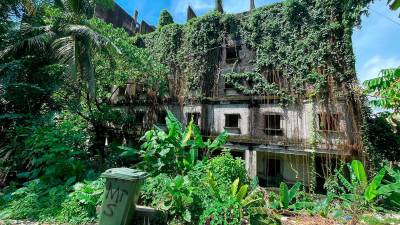PETALING JAYA: Developers of sick and abandoned projects will face tougher penalties, with the Housing and Local Government Ministry moving to amend the Housing Development (Control and Licensing) Act 1966 (Act 118) to cover commercial projects as well.
Minister Nga Kor Ming told Parliament the Madani government was committed to accountability, integrity and social justice in the housing sector, stressing that developers must be held responsible for projects entrusted to them.
“The ministry will not compromise with any developer who fails to fulfil their responsibilities and in the process burdens the people. Our commitment remains clear – to revive problematic projects and ensure the rakyat, particularly low-income groups, have access to safe, liveable and affordable housing.”
Through the National Housing Department, the ministry has set up a special task force for sick and abandoned private housing projects to identify, resolve and prevent problematic developments.
As of June 30, the task force had detected 233 delayed projects and 360 sick ones. Of these, 223 sick projects have since obtained certificates of completion and compliance while 14 projects have been fully restored, benefitting 25,822 homebuyers. To date, 1,127 abandoned projects involving about 135,000 buyers have been successfully revived.
Nga cited one recent success story – Residensi Hektar Gombak, a 2,400-unit affordable housing project under the Residensi Wilayah programme. Launched in 2018 but left incomplete in 2022, the project was revived after the ministry secured RM125 million in fresh funding, despite it falling under the jurisdiction of the Federal Territories Department.
“This demonstrates proactive leadership in reviving long-delayed projects and gives renewed hope to thousands of buyers.”
Nga explained that once a project is declared sick, the developer and its board of directors are blacklisted. Companies linked to the same directors are barred from applying for new licences, while their existing housing development accounts are frozen. However, Act 118 currently applies only to housing projects, not commercial ones.
To close this gap, the ministry is reviewing amendments to allow stricter enforcement, including action against parent companies, subsidiaries and beneficial owners of failed projects.
“The proposed amendments will allow enforcement to be carried out more effectively and comprehensively. This will strengthen preventive measures and ensure long-term accountability in the housing sector,” Nga said.
He added that the ministry would continue engaging enforcement agencies, state governments, industry players and consumer groups to ensure the amendments remain relevant, comprehensive and impactful under the Malaysia Madani framework.
Earlier, Kota Melaka MP Khoo Poay Tiong asked whether blacklisting should also apply to parent companies and directors if their subsidiaries were involved in abandoned projects.
Khoo highlighted the case of the Hatton Group in Malacca, in which several projects had stalled. He expressed concern that while subsidiaries could be wound up, the Singapore-listed parent company continued operating without repercussions.
Nga acknowledged the seriousness of the matter and confirmed that the ministry would investigate.
“The Hatton projects are complex and have dragged on for many years. We will open an investigation paper and explore the best way forward to https://teduh.kpkt.gov.my/ rdquo; he assured.
Meanwhile, Nga said the ministry had introduced a dedicated system through the Teduh portal (https://teduh.kpkt.gov.my/), enabling prospective buyers to verify whether a developer has been blacklisted.
He explained that the platform provides transparent and detailed information on housing developers for public reference.
“My advice is for buyers to always check the Teduh system and ensure they purchase only from developers who are not on the blacklist. This year alone, 109 companies have been blacklisted and prohibited from operating in the housing sector to safeguard the rights and interests of the public.”
Nga was responding to a supplementary question from Dr Halimah Ali (PN-Kapar), who asked about the effectiveness of the blacklist system in the absence of a scoring or rating mechanism to assess the track records of developers.
